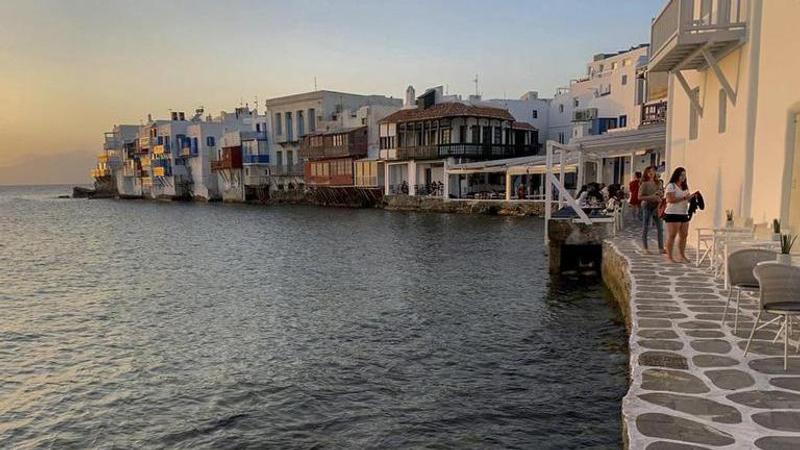Published 22:22 IST, July 18th 2021
Greece: 5 hour long night curfew imposed in Mykonos amid COVID surge
Greece has imposed a five hour night curfew and other restrictions on its most popular island-Mykonos-because of a “worrying” spike in local COVID-19 infections

Greece has imposed a five hour night curfew and other restrictions on its most popular island-Mykonos-because of a “worrying” spike in local COVID-19 infections, officials said on July 8. The country which has been reeling with months of start-stop restrictions finally opened its borders for foreign tourists earlier in May. However, as activities and parties multiplied, the coronavirus caseload also saw a dramatic surge on the Hellenic island.
As of July 18, 457,312 cases have been reported in the European country with over 12,826 deaths. Mykonos, complete with its summer party atmosphere and picturesque beaches attract thousands of visitors every year, include top celebrities and DJs. But Greek authorities have been lately alarmed by the number of clandestine parties held in the island's numerous villas.
What are the new restrictions?
According to deputy civil protection minister Nikos Hardalias, the new rules include a five-hour-long curfew from 1:00 am to 6:00 am. Additionally, there has been a ban on bars, clubs and restaurants from playing music. All the restrictions, which aim to bring Mykonos “back to normal”, are effective immediately and would be in place till July 26.
"We call on the residents, visitors and business owners of our beautiful island to follow the measures faithfully...so that the spread of the virus can be swiftly checked and Mykonos can return to normal," Hardalias said.
Greece has already confirmed cases of ‘double mutant’ Delta strain infection that was first detected in India. According to a Greek City Times, the national public Health Organisation (NPHO) said in a statement that the positive sample of strain B.1.617 is from a male inhabitant of Patras in Western Greece. The man developed symptoms from March 16 and was finally detected in the testing by National Genomic Surveillance Network on March 22. As per the statement, the preliminary investigation revealed that the man had no travel history or even contact with any confirmed case of India’s ‘double mutant’ variant.
Image: AP
Updated 22:22 IST, July 18th 2021




